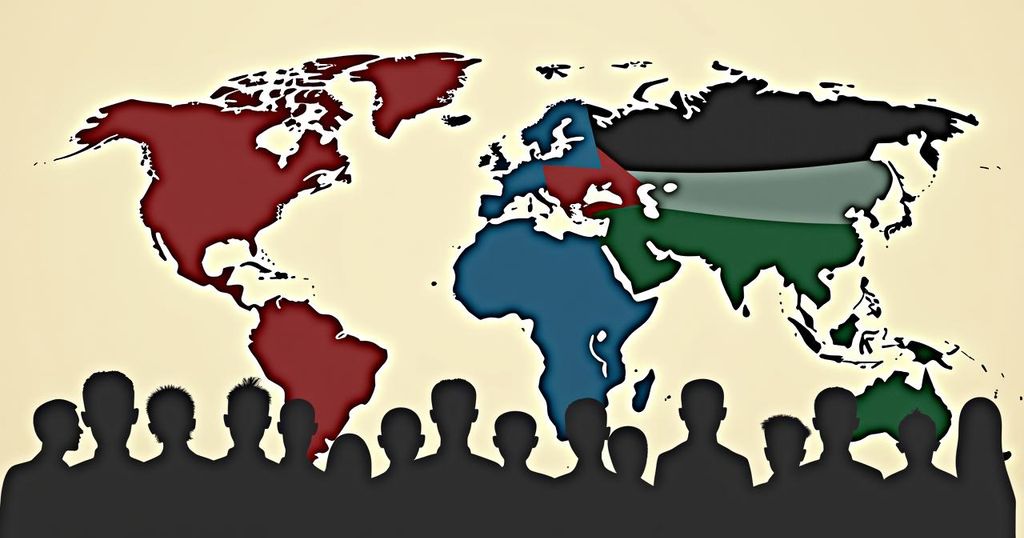Saudi Arabia Establishes Global Alliance for Israeli-Palestinian Two-State Solution

Saudi Arabia has announced a new global alliance to promote a two-state solution for the Israeli-Palestinian conflict. This coalition includes several Arab and Muslim nations as well as European partners, though specific members have not been disclosed. Following recent hostilities in Gaza, Saudi leaders reaffirmed their stance against recognizing Israel without a Palestinian state, emphasizing the need for coexistence and security in the region.
Saudi Arabia has initiated the formation of a global coalition aimed at advocating for a two-state solution to the longstanding Israeli-Palestinian conflict. This announcement was made by the Saudi Foreign Minister, Prince Faisal bin Farhan Al Saud, during the United Nations General Assembly convening in New York. The alliance reportedly comprises several Arab and Muslim nations alongside European partners; however, specific countries participating in this coalition have not been disclosed by the Saudi state news agency. In the wake of the Gaza conflict that erupted last October between Israel and Hamas, which governs the Gaza Strip, Saudi Arabia has momentarily halted plans supported by the United States for the normalization of diplomatic relations with Israel. This strategic pause reflects a shift in Riyadh’s stance, as it aligns its foreign policy more closely with Palestinian advocacy. Prince Faisal emphasized the importance of a two-state solution, stating, “Implementing the two-state solution is the best solution to break the cycle of conflict and suffering, and enforce a new reality in which the entire region, including Israel, enjoys security and coexistence.” His remarks underscore a broader commitment by Saudi Arabia to address the roots of conflict in the region. Moreover, Crown Prince Mohammed bin Salman (MBS) articulated a strong position against recognizing Israel without first establishing a Palestinian state, condemning the purported “crimes of the Israeli occupation” against the Palestinian populace. This statement resonates with the ongoing violence, marked by a severe escalation since the onset of hostilities on October 7, 2023, which has resulted in substantial casualties on both sides, including significant loss of life among Palestinians as reported by local health authorities. As the conflict persists, Israel’s military operations remain aggressive, with particular focus on threats posed by Hezbollah in Lebanon, suggesting that the geopolitical dynamics in the region will remain tense as efforts for peace persist.
The Israeli-Palestinian conflict has been a major international issue for decades, characterized by cycles of violence, territorial disputes, and failed peace agreements. Saudi Arabia, traditionally a key player in Arab politics, has recently sought to position itself as a mediator in this conflict, particularly in light of changing regional dynamics and a desire for improved relations with Israel under certain conditions. The two-state solution, which envisions an independent Palestinian state coexisting alongside Israel, is often cited as a viable framework for resolving the conflict, but its implementation has been fraught with challenges stemming from political, social, and regional complexities. The recent escalation of violence following the outbreak of war between Israel and Hamas has reignited discussions surrounding this solution and the responsibilities of the regional powers, including Saudi Arabia, in fostering peace.
In summary, Saudi Arabia’s establishment of a global alliance to advocate for a two-state solution to the Israeli-Palestinian conflict underscores its commitment to altering the current dynamics in the region. The leadership of Prince Faisal and Crown Prince Mohammed bin Salman indicates a strategic pivot away from normalization with Israel in the absence of substantive Palestinian statehood. This coalition, while yet to reveal its full membership, could play a pivotal role in renewed diplomatic efforts aimed at ending decades of conflict, provided that a sincere commitment to the two-state solution is pursued by all involved parties.
Original Source: www.jpost.com








